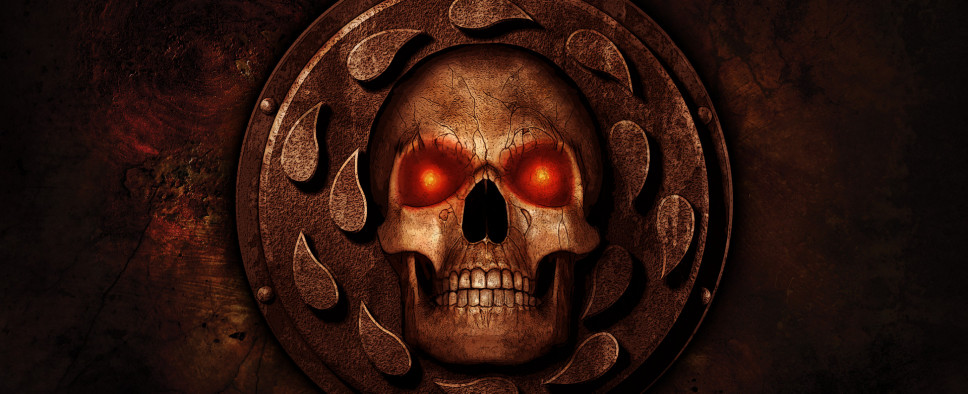Baldur's Gate - Celebrating the 20th Anniversary
-
Category: News ArchiveHits: 3670

Developed by BioWare and published by Interplay Entertainment, the original Baldur's Gate launched on December 21, 1998 and ushered in a new era of Dungeons & Dragons-inspired RPGs. And now, two decades later, this venerable RPG celebrates its 20th birthday, and as a result we can participate in the festivities by reading a bunch of retrospective articles dedicated to it.
Let's start with PC Gamer's article brought to us by the one and only Richard Cobbett:
It helped that Baldur’s Gate took the world by surprise. BioWare was a little known company whose previous game, the mech simulator Shattered Steel, had come and gone with little fanfare. Suddenly being faced with this gloriously beautiful, intricate, personality-filled adventure was… well, not a million miles from Peter Jackson going from Bad Taste to Lord of the Rings.
Almost immediately, characters like Minsc and his miniature giant space hamster Boo became gaming household names, while the chunk of the Forgotten Realms from Candlekeep to the titular Baldur’s Gate became home away from home for a good fifty hours or so of adventure.
Arguably the biggest individual success was the combat system, which moved away from the familiar scrum of both action-RPGs and the likes of Ultima, which weren’t particularly interested in that side of things. It also wasn't like the turn-based action of Fallout and pals: Baldur's Gate had a smooth real-time-with-pause system. This kept the action flowing fast and free, while still allowing for proper tactics.
Then, let's check out this extensive feature from The Ringer that tells us how Baldur's Gate saved the Computer RPG:
Baldur’s Gate began in a basement.
Scott Greig, who became the first official BioWare employee, remembers how he heard about the company: An intern at the business where he was doing database work told him about some friends of his father’s, medical doctors who were getting into game-making. “I’m thinking, ‘Yeah, yeah, just a couple of guys in their basement,’” Greig says. That part, Greig discovered when he eventually met them in late 1995, turned out to be true: Ray Muzyka and Greg Zeschuk, two of the three newly graduated doctors who (along with three other associates) founded BioWare in February ’95, were working out of Zeschuk’s basement in Edmonton. But their desire to make games was serious, and they were already working on one. “It really was two guys in the basement making video games,” Greig says, “but they were two guys in the basement with a national contract with a real publisher.”
The company was looking for a lead programmer. “I was actually the only experienced game developer in the house,” says Oster, who would eventually join the Baldur’s Gate team as the head of the 3D art department after finishing Shattered Steel. “And I mean, I had made one game. … It’s not like I knew the right way to do anything.”
After that, we can read this Kotaku article that looks back at a number of memorable encounters from Baldur's Gate:
Another excellent encounter are the wolves in the first screen of the Lion’s Way, the path that you follow immediately after seeing Gorion die. You’re a little first level character, and these wolves can roll up and absolutely eat you alive. They just completely wreck you. It’s a fast lesson in how life works here for low-level characters, and despite not being a scripted narrative event, it sticks out as an encounter that demonstrates that life is nasty, brutish, and short outside of the walls of the monastery where your character grew up.
Then there’s the basilisks that live under the giant library compound, and the military commander with the cursed helm, the man who needs you to collect things for his experiments, the “witch” that lives outside the walls of the city, the elf who is captured deep in the mines, the bandits who can waylay you with their dozens of bows that produce a hail or arrows, and all of the other concise story moments that bleed into each other.
And then, there's Eurogamer with a couple of links to their earlier features:
The game was a critical and commercial success, with impressively high review scores and higher than expected sales. There's no Eurogamer review of Baldur's Gate (Eurogamer didn't spark into life until 1999), but Paul Dean penned a retrospective of Baldur's Gate 1 and 2 for us back in 2012.
Speaking specifically about Baldur's Gate, Dean wrote: "It was irreverent, referential, self-aware, sarcastic and charming in equal measure, its words animating its characters and world as beautifully as its music and its visuals. It told the stories of embittered slaves, eccentric explorers, half-mad magicians and poor Maple Willow Aspen, who simply wanted to avoid any more tree-related taunts. The game was as full of jokes as it was adventure, its puns and pranks as much a reward as experience points."
Finally, last week Beamdog announced a Baldur's Gate-themed anniversary contest, and if you're interested in the results or would simply like to read some Baldur's Gate-related memories, you should check out this Beamblog post.

